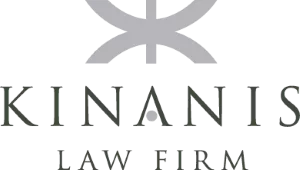A. INTRODUCTION
The beneficial ownership of the income concept ("the Concept") is nowadays a material aspect affecting the eligibility of the taxpayers to claim treaty benefits.
The Concept is defined by the OECD, however, it is not very specific leaving room for Tax Administrations of each jurisdiction to adopt a more relax or strict approach. In either case the Concept is a weapon to the tax authorities which enables them to attack aggressive tax planning by refusing granting treaty benefits to the entities that are not beneficial owners of the income. The most recent example is the new interpretation of the Russian Federal Tax Service ("FTS") issued on 12th of April 2018 which followed a strict approach as of the concept.
Given the above, clients should examine the position of their companies and take the necessary measures to comply with the new requirements of Russian Federal Tax Service. This should not be limited to those clients that obtain treaty benefits from Russia but to all clients that obtain treaty benefits as the "concept" can be found in all double tax treaties.
B. DEFINITION OF BENEFICIAL OWNERSHIP BY OECD
In the OECD commentary on Article 10 of the Model Convention, it is stated that the term "beneficial owner" should not be used in the narrow technical sense but should be understood in light of the object and purposes of the Convention, including avoiding double taxation and the prevention of fiscal evasion and avoidance.
The Commentary also states that in the cases of an agent, nominee, Conduit Company acting as a fiduciary or administrator, the direct recipient of the dividend is not the "beneficial owner" because that recipient's right to use and enjoy the dividend is constrained by a contractual or legal obligation to pass on the payment received to another person. Such an obligation will normally derive from relevant legal documents but may also be found to exist on the basis of facts and circumstances showing that, in substance, the recipient clearly does not have the right to use and enjoy the income.
The Commentary stresses that the beneficial ownership concept should be applied only in relation to passive income such as dividends, royalties and interest.
C. DEFINITION OF BENEFICIAL OWNERSHIP BY RUSSIAN FEDERAL TAX SERVICE
In an effort to interpret the meaning of actual right to use/or dispose the income the FTS issued a letter in 20171, explaining that the beneficial owner of income can be determined through a limited list of criteria:
- Independence of directors in decision-making;
- Power to dispose of the income;
- Genuine business activities;
- Availability of personnel, office and related general administrative expenses;
- Use of the income in entrepreneurial activities (enjoying the economic benefits from the income);
- Absence of any legal or actual obligations to further transfer the income, including the systemic nature of any transitory (back-to-back) payments;
The FTS noted that the beneficial ownership concept applies to all types of income.
2018
In 2018, the FTS provided further guidance2 as to the criteria which were initially analysed in 2017 which has now led to an increase in the requirements for a foreign entity to qualify as the beneficial owner of the income. The new criteria for the beneficial owner of income are can be summarised as follows:
1. Sufficient level of substance
The FTS guidance states that a foreign company should be in the position to demonstrate the right to use and dispose the income independently (as per the requirements of the 2017 letter) AND also to demonstrate that the foreign company operates as an independent business. If no independent business is performed then it is an indication of a conduit company. According to the new guidance a conduit company is a company which has the following characteristics:
- Has no independent operating activity.
- Absence of non-Russian Income.
- Principle purpose is to redirect income to shareholders or group entities.
- The company takes minimum financial and commercial risks.
- Its employees perform minimum functions.
- Minimum administration costs.
- No significant income other than dividends and interest from related entities.
According to the FTS guidance, the below do not constitute valid arguments to prove that a company operates as an independent business:
- Holding and financing activities are not considered as operational activities.
- The investing in the shares of a company without involvement in the operations of the subsidiary do not constitute active business.
- Minimal personnel cost doesn't not evidence the employment of qualified staff.
- The only administration expenses of the company are for the compliance with the local regulations. This is an indication that the company does not operate independently.
2. Genuine business activities
This approach focuses on the business purpose and nature of the transactions. More specifically, in order for a company to qualify as the beneficial owner of the income, the Russian taxpayer has to justify the need for involving a foreign company in their business structure and operations. Further, evidence should be provided that the involvement of the foreign company was reasonable and also to present the associated business risks.
In case the Russian taxpayer is unable to demonstrate the business rationale for involving a foreign company the tax authorities have the right to deny treaty benefits and also to reclassify the payment, for example from debt to equity.
3. Disclosure Requirements
The new interpretation enforces extensive disclosure, since the burden of proof in relation to the qualification of the beneficial ownership concept, has shifted from the Tax Authorities to the taxpayers, since all the above-mentioned criteria necessary to be met, should be proved and justified by the taxpayer in order to receive the treaty benefits.
D. CONCLUSION
The new approach mainly focuses on attacking the holding, treasury, licensing, and intermediary group financing companies in an effort to extinguish all the previously adopted tax planning practice followed with the purpose of tax avoidance and tax minimisation.
On top of this, the fact that this is a change in interpretation rather than a formal amendment to the Russian Tax Code, means that this approach may apply to transactions for the past three years that are still open for tax audit.
It is evident through the years, that the Russian Tax Authorities follow an aggressive approach. Therefore, there is need for a more in-depth and sophisticated analysis of the existing structures, in order to reassess the viability and the corresponding tax risks based on the current tax developments.
Our Tax Department will be able to prepare a diagnostic review and propose possible solutions to your structure.
Footnotes
1. Letter СА-4-7/9270@ of 17.05.2017
2. Letter CA-4-9/8285 @ of 28.04.2018
The content of this article is intended to provide a general guide to the subject matter. Specialist advice should be sought about your specific circumstances.


